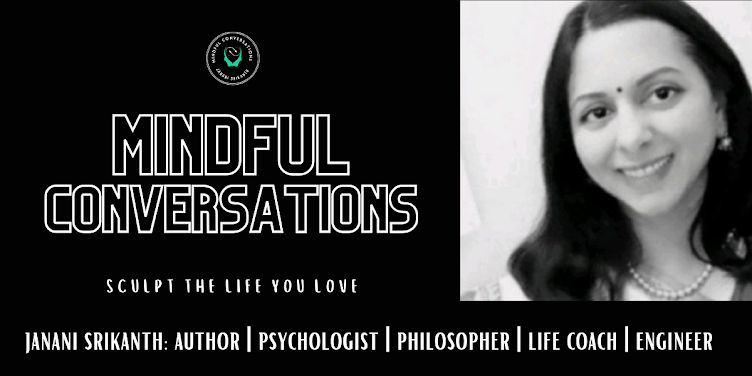There’s something quietly amusing about how society treats perfection, as if it’s a contagious lie.
You see a couple walking down the street, holding hands, smiling at each other with that rare kind of easy affection, and someone whispers, “Hmm… they must have issues. No one’s that happy.”
Because heaven forbid love exist without complications, therapy sessions, or passive-aggressive texting between eye rolls. Happiness, apparently, is suspect.
Or take social media.
Someone crafts an article that has perfect grammar. Not a missing comma in sight. You might expect applause—or at least a nod of recognition.
But no.
People lean back, squint at the screen, and murmur, “Wait… did you write this? Must’ve used some tool. No human can… you know… write so well.” Structured grammar, coherent thought, thoughtfulness—all suddenly proof that you are not quite of this world.
And yet, paradoxically, the same world expects perfection in deliverables, clarity in communication, and competence in execution. The absurdity is exquisite.
Even compliments are dangerous.
A friend writes a thoughtful, genuine note praising your work or effort, and suddenly a third party wonders aloud, “Why are they being so nice? What do they really want?”
Generosity, kindness, care—these are now anomalies, anomalies that demand hidden motives. Because if humans can be purely good, free of irony or agenda, the world feels unbalanced. Sincerity, it seems, is a threat to equilibrium.
Nowhere is this phenomenon more pronounced than when promotions appear on the horizon.
Ah yes, the office promotion—the ultimate social Rorschach test.
Someone receives recognition, and the gossip machinery revs to life: “She got promoted? Must be buttering up the boss.”
It doesn’t matter that the person has consistently produced brilliant work and exceeded every target. No, clearly there is a hidden agenda. Recognition, merit, and excellence cannot exist organically. Success must always be engineered through charm or manipulation, preferably while standing on one foot and winking at the boss.
Compliments at meetings? Calculated.
Staying late occasionally? Strategic.
Offering to help a stressed coworker? Networking.
Every act of competence, kindness, or initiative is filtered through the lens of suspicion.
This suspicion isn’t restricted to promotions or relationships. It extends into every sphere of life where effort meets recognition.
The message is clear: humans cannot simply do well—they must have ulterior motives. Competence must be mysterious, and success must be suspicious. Ordinary excellence is dissected, analyzed, and reframed as either artifice or subterfuge.
It’s funny, really. Society has a curious obsession with imperfection. Flaws are comforting—they prove that life is messy, unpredictable, and human.
If someone is kind without irony, competent without manipulation, or precise without calculation, it feels like an anomaly. And when that anomaly is rewarded—a promotion, a public acknowledgment, even a smile—it threatens the narrative we have constructed about how life “usually” works. Excellence becomes, by default, suspect.
Yet there is a subtle, quiet joy in this absurdity. Observing perfection or competence without ulterior motives becomes a kind of private amusement. We notice the humor in the whispers, the sideways glances, the over-analysis. There is liberation in witnessing skill and sincerity without being required to explain or justify it. Excellence exists, and sometimes the most satisfying response is simply to smile and let the world puzzle over it.
And then there are the everyday instances—the small, nearly invisible ones—that compound the amusement.
The colleague who brings in a perfectly baked cake for a team birthday.
The teammate who quietly fixes a shared spreadsheet without announcement.
The manager who gives clear, concise feedback. Feedback that actually helps people grow.
Each act is met with gratitude by those directly involved, yet whispers circulate elsewhere: “Wait… why are they being helpful? Is there a reason?”
The humor emerges from the tension between intention and perception—the sheer audacity of humans doing good or competent work without ulterior motive.
Happiness, competence, and kindness are treated like rare artifacts, almost too precious to trust. And yet, they exist. Quietly, beautifully, and often unnoticed.
I’ve come to see these social suspicions as a reflection less of reality and more of human psychology. Humans are narrative beings. We need stories with conflict, mystery, and twists.
When someone simply acts with integrity or skill, we instinctively invent a story to account for it.
A loving couple? Must have hidden arguments.
A competent coworker? Must have hidden strategies.
A kind friend? Must have hidden demands.
If life were simply as it appears, we would be deprived of plot, suspense, and gossip. And so, suspicion is born, not from the person, but from the audience’s craving for complexity.
This absurdity, however, is rich material for humor. We are performers and spectators at once, caught between genuine effort and constant evaluation.
So, what is the lesson here?
Perhaps it is that perfection, competence, and kindness do not need to defend themselves. The pursuit of perfection, or the compulsion to manufacture it, can easily kill the present. No one needs to chase flawless expression or flawless behavior relentlessly. Yet when perfection does appear—whether in a well-crafted paragraph, a thoughtful gesture, or a quietly competent act—it should inspire hope, not suspicion.
And sometimes, if someone asks, we can simply smile and say, “Completely human, completely intentional. Just a little extra care in a world that often skips it.”

.png)